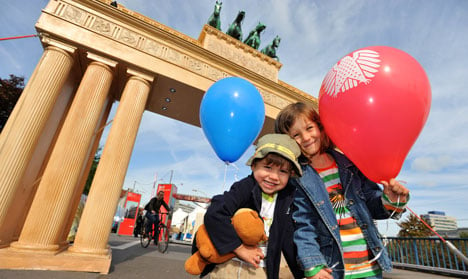At a festival celebrating the reunification of East and West Germany in Saarbrücken, Merkel said that German unity was brought about by the bravery of thousands of its citizens.
“It didn’t fall from the heavens,” Merkel said. “It was the result of bravery, decisiveness and civic courage.”
In praising the work of civil society and dissidents in East Germany, Merkel said the spirit of the peaceful revolution in 1989 should be example to Germans today.
“We need a permanent, productive unrest, as we experienced in 1989,” Merkel said.
After an election last Sunday, which returned Merkel’s Christian Democratic Union to another term in office, she also appealed to Germans of all stripes to work together.
“We must leave old disagreements behind us,” Merkel said, adding that the financial crisis demonstrates what happens when there is freedom without responsibility.
The Saarland capital of Saarbrücken is this year’s focal point for the German Unity Day celebrations and is expected to draw 500,000 visitors. The celebrations move from state to state each year, based on which state helms the Bundesrat, the upper house of parliament.
In addition to the festivities in Saarbrücken, Berliners are celebrating German Unity Day with a street festival in front of the Brandenburg Gate and a giant marionette parade through the city.




 Please whitelist us to continue reading.
Please whitelist us to continue reading.
Member comments